Libertarian Social Democracy: Delegative Democracy, Land Value Tax, & Universal Basic Income
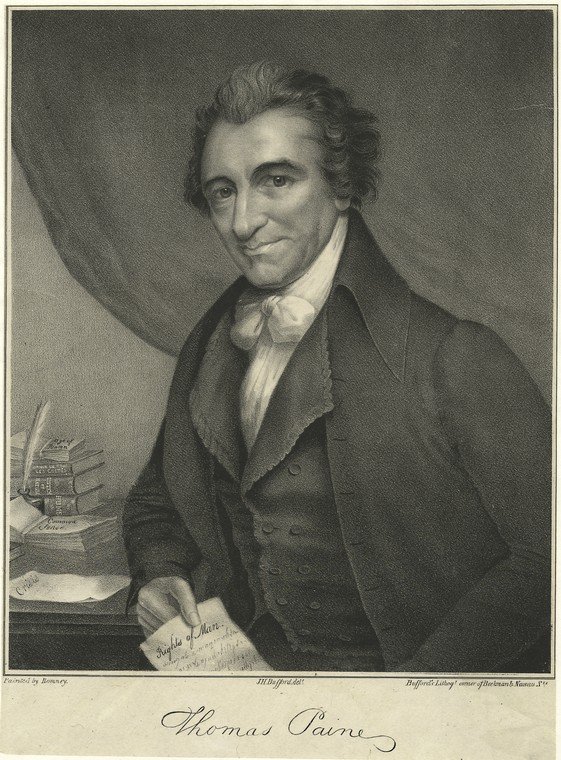
I refer to myself as a libertarian social democrat, by which I mean that my views combine elements of libertarian socialist and social democratic thought. My political views fall within the radical republican tradition. A republican is someone who advocates representative democracy and, usually, a constitutional government. A radical republican is someone who tries to carry the principles of republican theory through to their logical conclusion. As such, the radical republican tradition contains a diverse set of members. The radical republican tradition claims members from American founding fathers like Thomas Jefferson, James Madison, and Thomas Paine to abolitionists and civil rights advocates like Charles Sumner, Thaddeus Stevens, and Ulysses S. Grant; but it also includes single-taxers, social democrats, and reformers like Henry George, Eduard Bernstein, Louis Blanc, and Annie Besant; even a large number of libertarian socialists or anarchists, such as Pierre-Joseph Proudhon, Mikhail Bakunin, Peter Kropotkin, Murray Bookchin, and Abdullah Öcalan, fall within the radical republican tradition. Many classical socialists and anarchists were republican insofar as they advocated a form of representative democracy, usually emphasizing elected delegates subject to representative recall and bottom-up confederalism with the local commune (municipality) as the heart of political activity. Personally, I draw inspiration from this whole broad spectrum of radical republican thought. I am not entirely an anarchist insofar as I do not think that absolute "free association" and consensus are either attainable or really desirable. I'm not quite a single-taxer, even though I do advocate land value tax, because I think that additional Pigouvian taxes like carbon tax and pollution tax may be beneficial and just.

What I share with all radical republicans, from Thomas Jefferson to Peter Kropotkin, is the conviction that society ought to be governed democratically and on a representative basis. I am particularly interested in delegative democracy and democratic confederalism, especially as espoused by Murray Bookchin and Janet Biehl, but I think such an approach needs to be integrated with broader republican ideas like digital democracy, ranked-choice voting, deliberative democracy, etc. While I think the creation of a "dual power" scenario might be beneficial, I envision it quite differently from the way that Bookchin does. Bookchin envisions "dual power" as "a strategy for creating precisely those libertarian institutions of directly democratic assemblies that would oppose and replace the State."(Murray Bookchin, Thoughts on Libertarian Municipalism) I think that we ought to create assembly democracies in every municipality, small peoples' assemblies, and confederate them into a vast citizens' union in order to build consensus from the bottom-up and then serve as a "go-between" to bargain with the State on behalf of the people, and, if necessary, to force the State to do the will of the people. If the people can gain control of the State through such democratic institutions, then the State as such does not necessarily need to be replaced. It can be reformed so as to leave the monetary, fiscal, and social welfare framework in tact and usable by the people. I agree with the "land value tax" or "ground-rent" proposals of Henry George and Thomas Paine; and I especially like the modernized version of Paine's "agrarian justice" that we find in Scott Santens and Martin Farley, who advocate the use of land value taxes to fund a universal basic income for all citizens.
My vision of libertarian social democracy consists of three parts: (1) a comprehensive republican system that integrates democratic confederalism with libertarian proposals like ranked-choice voting, digital democracy, and a peoples' veto (the ability of the people to directly veto any piece of legislation), (2) the recognition of communal-ownership of land and the collection of a ground-rent to the community as a source of revenue, or, what amounts to the same thing, the collection of a tax on the value of land, and (3) handing over any revenue beyond what is used for defense, infrastructure, and welfare purposes to the citizens in the form of a citizen's dividend or universal basic income.
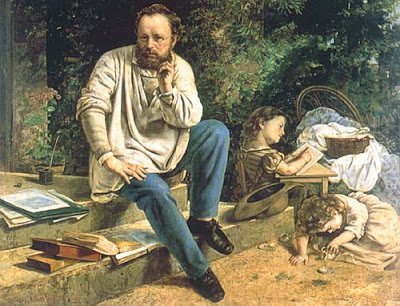
Socialists and anarchists will say that my views are "reformist" or "social democratic", to which I must agree and cannot object, but I must say that I reached this point by following anarchist analysis where it logically leads. Oddly enough, it was Pierre-Joseph Proudhon's critique of private property and comparison of property to albinatus jus (droit d'aubaine) that caused me to be sympathetic to Henry George's case for land value tax. Proudhon points out that fee-simple property arrangements under capitalism allow landlords and motgagees (banks) to legally steal what rightfully ought to belong to tenants or mortgagors/homeowners. Suppose a man gets a mortgage for 100,000 dollars, buys a piece of real estate with the loan, pays off 75,000 dollars of the loan, and builds an additional 50,000 dollar structure on the property. After having paid off 75% of the loan, the homeowner loses his job because the economy is going through a recession and cannot find new employment in a timely fashion. This causes him to default on the loan. The bank then forecloses on the property and takes his home. The bank still has the 75,000 in payments that he's made, but now has the property too, which contains an additional 50,000-dollar structure contributed entirely by the mortgagor, along with the rest of the property which originally was worth 100,000 dollars. Land always increases in value, but let's just assume the original property did not increase in value naturally and that the only added value was that created by the additional structure that the homeowner built. In this scenario, the man owes 25,000 dollars; and, since he does not have the 25,000, the bank gets to take 225,000-dollars-worth of value from him. The bank keeps all the money he paid so far, takes the property that he bought with the loan, and keeps all the value he has added to that property. This is just legalized theft―theft that would not be possible apart from the artificial rules and regulations created by our society. At the same time, a land-speculator can buy a plot of land in the country for 10,000 dollars and hold on to it for 10 years, waiting for the surrounding area to be developed by others. Then the county puts in roads that give easy access to the parcel of land. They also put in schools and hospitals. Some businessmen put in grocery stores, restaurants, and bars. All these new developments drive up the value of the speculator's land. The speculator turns around and sells the piece of land for 100,000 dollars, making a 90,000 dollar profit without ever producing anything. All of the additional value was contributed by the local government, neighbors, and local businesses. Our current system of property allows the speculator to capture and keep the wealth produced by society. The argument of Henry George is that such social wealth ought to be socially-owned. Since this wealth was produced by society rather than by any particular individual, this wealth should go to the community rather than to private landlords and speculators. Like Proudhon, George advocated a form of communal-ownership of land. However, he didn't wish to take the land away from the private owners. Instead, we should collect a "land value tax," which can also be looked at as a ground-rent owed to the community for the private use of communal land. Georgism, then, appears as a sort of "third way" between private-ownership and communal-ownership.

When it comes to the idea of a universal basic income, I can't really separate that idea from land value tax. As far as I am concerned, the basic income must be funded by land value tax. Another way to look at this is to say that the land value tax is actually ground-rent for communally-owned land and that the basic income is just a share or dividend of the ground-rent revenue due to each member of the community. And it was really Joseph Dejacque's and Peter Kropotkin's communist anarchist critique of Proudhon's mutualist anarchism that made me so sympathetic to the idea of universal basic income. Typically, the socialist argument went that "a person is entitled to the entire product of their labor" but the communist anarchists observed that a person isn't really entitled to the product of their labor as much as they are entitled to the satisfaction of their basic needs. If a person has a mental disability, doesn't society still have a moral obligation to care for them? If a child is too young to work, don't we still have an obligation to feed them? As long as we, as a society, can afford to do so, we are morally obligated to provide the necessities of life to everyone regardless of how much they can produce. The principle that emerged was this: "From each according to their ability: to each according to their need." The simplest and easiest way to go about achieving this goal seems to me to be to collect ground-rent for use of land (land value tax) and divide the revenue up evenly as a social dividend, in order to ensure that everyone has an equal share of social wealth. If we were to do this, every single person in our society would have enough money to meet their basic needs. Poverty is a lack of money. The simple solution is to give poor people money. If everyone gets an equal share of social wealth, poverty is abolished with one stroke. Although the communist anarchists were not proponents of such an approach as this, I am convinced that this approach really is the surest and most realistic way of achieving their economic goals.
Let’s go back to Proudhon’s critique of capitalistic private property as being analogous to droit d’aubaine, the right of a sovereign king to the wealth of foreigners in the land. The argument goes that the owner of the land is entitled to whatever wealth is contributed by the foreigners/tenants. I would make the case for regarding mortgages as rent and banks as true owners. The so-called "homeowner" is a tenant in a rent-to-buy scenario, where the bank is the landlord (only without any obligations on the part of the bank). Under capitalism, the bank is the sovereign king! If the foreigner dies/defaults, the bank takes his wealth. This arrangement under capitalism actually incentivizes banks to make bad loans. A bank makes more money off of a bad loan than a good one. Malinvestment is profitable.
The banks make loans for collateral. Let’s assume that a person borrows money to buy a house. He gets a 100,000 dollar mortgage. He now has this 100,000 dollar house. Additionally, he builds a 30,000 dollar guest house on the same property. Over time, he ends up paying off 75% of what he owes. The economy enters a recession, so he loses his job. Since there is a recession, it takes a while for him to find a job that pays sufficient wages to cover his cost of living. This causes him to default. The bank forecloses on his house. The bank gets to keep the 75,000 dollars that he has already paid. (We will ignore interest for simplicity's sake.) The bank also gets to take his house and sell it. The bank sells the house for 160,000 dollars: the original 100,000 dollar property value plus the 30,000 additional value contributed by the homeowner plus another 30,000 of additional value due to natural appreciation with population growth and development. For a 25,000 dollar debt, the bank has been allowed to take 235,000 dollars in value away from the homeowner. This is immensely unjust and prompted Proudhon to declare that “property is theft.” Fee-simple property under capitalism allows banks to effectively rob people.
Banks profit off of foreclosures. This encourages malinvestment. If a bank lends to someone that they know can afford to pay, they only earn interest, which is still a lot of money but it trickles in slowly. Suppose the individual above got a 4% interest rate on his loan and that it's a 30 year loan. Over the course of 30 years, the bank makes 71,869.51 dollars. That’s still ridiculous, but it is only a profit of 2,395.65 dollars per year. If the bank lends to someone that they know won’t be able to keep up with the payments, they can not only get their money faster but also make much more money than they would make by making a sound investment. Let's take another individual, and assume the bank knows there's little chance of him being able to keep up with payments in the long run, but the bank gives him the same deal as the former: 100,000 dollar 30 year mortgage at 4%. After just five years, the bank forecloses. He still owes 90,447 dollars. The bank keeps the 28,645 dollars that he’s already paid and sells the house for 100,000 dollars. (Let’s assume that the property value has not increased.) The bank made 128,645 dollars in just five years vs. 71,869.51 dollars in 30 years. Under capitalism, bad investments are profitable. This is part of what fueled the financial crisis and the housing market crash.
Let’s imagine what it would be like under a system with a universal basic income funded via land value tax. The basic income would likely only cover the necessities like food, shelter, and health insurance. If you want to live in luxury, have the best car and the nicer house, you have to work for that. Let’s now imagine the scenario I spoke of before. A man borrows money for a house, then a recession sets in and he loses his job. Well, now he can continue to make his mortgage payments with the money he receives from basic income. The basic income provides a cushion that helps him transition into new work. The bank never forecloses on his home. In fact, throughout the whole economy foreclosures are rare. Recessions never get out of hand; and bailouts and Keynesian government spending programs are totally unheard of. Poverty doesn't exist and the whole system is more just, fair, and libertarian.
Furthermore, land speculation under capitalism artificially inflates prices. Under land value tax, buying a house as a primary residence would generally be cheaper. Imagine a speculative investor buys a piece of land and holds on to it while waiting for the property to appreciate in value, but there is a 6% annual land value tax. If the land value starts at 20,000 dollars, he must pay 1,200 dollars each year. The tax rises to 2,400 a year when the value rises to 40,000. If the land steadily increases in value to 40,000 over 10 years, the speculator will have paid 18,000 dollars in land value tax. His speculative investment only earns him 2,000 dollars rather than 20,000. Meanwhile, the land isn't currently making any money for the speculator. In fact, it is not currently benefiting him at all: he does not live there, does not rent it out to anyone else,etc. The longer he holds the land out of use, the more the yearly cost compounds. It's actually in the best interest of the speculator to either use the land for some purpose or else to sell it to someone else who will use it. Land speculation becomes less profitable and so land value ceases to be artificially held high by speculation. So, if someone wants to get a mortgage for a place in the country or in the suburbs, the price of the property will be much lower under land value tax and the basic income under my proposal will further offset the cost. Housing becomes more affordable as speculation becomes less profitable. However, prime real estate downtown in a big city will be more expensive due to much higher taxes. This means that corporations that want prime real estate will end up taking more of the tax burden. Also, it means that housing in urban areas might tend to become more cooperative, as co-ops and apartments become more standard. It will encourage building up rather than out. You'll find more people living on the same piece of land vertically rather than people spreading out in urban environments. This could, theoretically, help to eliminate the problem of urban sprawl.

People need to be free to make their own political decisions, through participatory democracy. If decisions are made by rulers apart from, and above, the people, there is no liberty. Self-government is a necessary condition for liberty. Liberty can be conceived in different ways. There is freedom from external coercion and compulsion, then there is the freedom to pursue one's goals. In a patriarchal society where only men are allowed to work, women may technically be allowed to divorce their husbands and leave to start a new life, but that freedom is null if she is entirely dependent on her husband for sustenance. Even though women have the right to work, there is still quite a bit of this in our society. Woman stay in abusive relationships because there is something keeping them there. Perhaps she cannot afford another place to live, cannot provide for her kids without her husband, or something of that nature. More broadly speaking, we can see this sort of lack of freedom in the labor market in general. We are free to leave our jobs and seek employment elsewhere, but most of us are living paycheck-to-paycheck and don't really have the liberty to just walk out. Our jobs can get quite shitty and unfair before we even consider walking out. If we do walk out, we know we are risking everything. We may become homeless. Basic income emancipates us from this lack of freedom. If a woman is guaranteed a certain basic income, then she can always afford to leave an abusive partner. It will never be the money that keeps her in an abusive relationship. If basic income provides a slight cushion, just enough to ensure me that I won't end up homeless while transitioning between jobs, then I can walk out the door if my employer tells me to do something that is dangerous or harmful to my health. Basic income restores human dignity and emancipates us from the slavery that is lack of money. Poverty is violence and basic income is a defense against it.
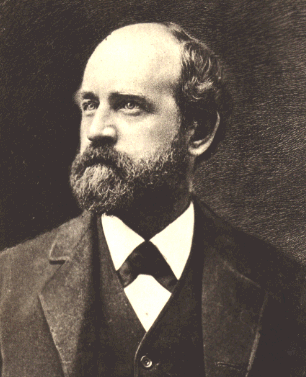
Western society is supposedly built upon this pillar of democracy. This is supposed to be true both politically and economically. This is why economists like Milton Friedman and Ludwig von Mises have spoken of "the democracy of the market." In the marketplace, each dollar is a vote. If you prefer one product to another, you can "vote" for that product by spending your money on it. If you dislike a particular company because they have unethical practices, you can refuse to give them your "vote" by boycotting them and/or buying from their competitors instead. In Everybody's Business, Abba Lerner made the observation that there is some validity to this "democracy of the market" narrative. However, he also points out that the market can never be truly democratic if there is a disparity of wealth. Inequality renders the democracy of the marketplace null. The wealthy will dominate the marketplace and "outvote" the poor. The wealthy can prop up businesses that are really unpopular, and they can even use their wealth to destroy better options. A company like Walmart can move into a small town and undercut the competition due to the ridiculous amount of money available to them. They can sell all of their produce really cheap, below cost, for a while, until they put the local grocery stores out of business. Afterwards, they will jack up their prices. Suppose there is a piece of land that most people want to be used as a park. However, a billionaire buys the land and turns it into a parking lot. He can do so because he has more money and more votes than anyone else. In order for the market to be truly democratic, the distribution of wealth must be relatively egalitarian, so that no one has much more economic power than anyone else. The land value tax and universal basic income proposal―effectively making land communally-owned and charging ground-rent for private use, then giving each member of the community an equal share or dividend of the revenue―actually creates the foundation of egalitarianism that a truly democratic marketplace must be built upon.
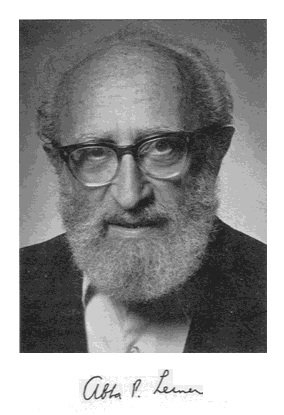
Just as this taxation and redistribution lays the foundation for a truly democratic marketplace, it would lay the foundation for a truly democratic political system. Wealthy people can buy politicians. Poor people can't. Consequently, representative democracy only works in a society with a high degree of distributive justice and egalitarianism. Currently, every Trump appointee is somehow tied to Robert Mercer, Trump's most powerful billionaire donor and supporter. Kellyanne Conway, Betsy Devos, Steve Bannon, and Jeff Sessions all have ties to Robert Mercer and their selection was supported by Mercer. Robert Mercer's daughter Rebekah Mercer, served in a leadership role on Trump's presidential transition team. Robert Mercer's net worth is 10 billion dollars greater than Trump's and he consistently brings in over 100 million dollars a year, making Trump look like a middle class American. Politically, Robert Mercer has much more power than any other American simply because he has more money. The current head of the FCC is Ajit Pai, the former Associate General Counsel at Verizon Communications Inc., and he is now pushing reforms that will directly benefit Verizon. Ajit Pai is working on repealing Net Neutrality, which will allow companies like Verizon to slow or block certain websites. Verizon is an internet provider that also happens to own Yahoo. The repeal of Net Neutrality will allow Verizon to keep its customers from being able to use Google and force them to use Yahoo instead. The repeal of Net Neutrality will not be stopped, even though it is not in the best interest of the people. Today they announced that the FCC officially repealed Net Neutrality, even though over 80% of Americans want to keep it in place. The reality is that companies like Verizon and AT&T, which will make a lot of money if the law is repealed, will get their way simply because they have so much money (more even than Robert Mercer). Money is power, so those with the money will win. As long as there are really wealthy people and big corporations, representative democracy cannot work. A million dollars has more weight than a million votes. The wealthy can buy politicians, but poor people can't. The money of the rich and powerful counteracts the votes of the people. As long as there is a vast disparity of wealth and such inequality, where the rich are so much better off than the poor, so-called "representative democracy" is merely a sham and plutocracy reigns. By moving towards egalitarianism and distributive justice, we are moving towards true democracy. If we tax away excessive accumulation of wealth and redistribute it in an egalitarian fashion, we create an environment in which no one can simply buy politicians. Wealth is power. When wealth is relatively evenly distributed, power is relatively evenly distributed. It is only under such conditions that democracy is even possible. So the creation of a land value tax and a universal basic income would lay the foundation of distributive justice that makes it possible for representative democracy to work.
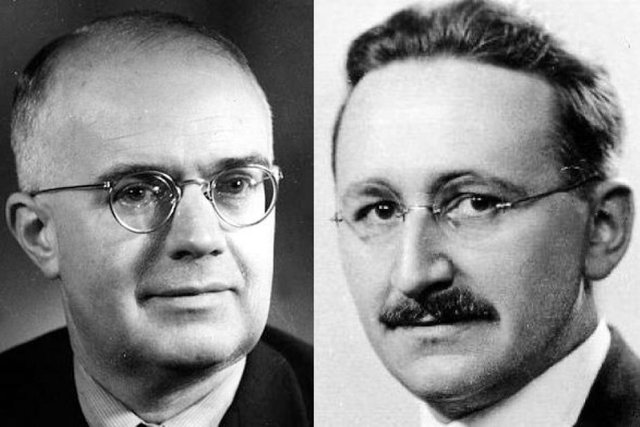
This communal-ownership of land and collection of ground-rent to fund a citizen's dividend (i.e. land value tax plus universal basic income) is actually not enough. This is just a start. Corporations are legal fictions, created by government fiat. And the most powerful corporations are those that exist through exploitation. Companies like Boeing, Verizon, AT&T, GM, and Walmart receive huge government subsidies in a variety of ways. Furthermore, they live and thrive off of the use of, and often monopolization of, resources and infrastructure that were created using tax-payer money. All the research and development (R&D) that went into creating commercial airliners was funded by the government. The internet was the creation of the State. The roads that Walmart uses to transport its products to sell are created and maintained with tax-payer money. Like land, these resources ought to belong to the people as a whole. Without the infrastructure provided by government, subsidies provided by government, and the rules and regulations created by the State that allow capitalistic corporations to exist, there would be no such thing as a "corporation." Corporations ought to, therefore, be regarded as the product of society and the State. Consequently, it would make since to say that all corporations are at least partially public property. Thus, the State ought to collect a corporate tax as a share of ownership. Furthermore, there are certain companies that receive greater subsidies than most, and these companies should be more publicly-owned than others. Let's take GM for instance. In 2008, GM got a 13.4 billion dollar bailout, funded by the tax-payers. In my opinion, the American people as a whole ought to now own 13.4 billion dollars worth of shares in GM. Take the banks that were bailed out, give the American people a share of ownership equivalent to the bailout. Every company that takes a government subsidy, give the people a share of ownership equivalent to the subsidy. Commercial airlines that exist only because the cost of R&D was wholly funded by the State ought to be likewise regarded as so much public property. The communal share of the profits ought to be collected by the State and redistributed to the entire populace as part of the citizen's dividend.
Congratulations @ekklesiagora! You have completed some achievement on Steemit and have been rewarded with new badge(s) :
Click on any badge to view your own Board of Honor on SteemitBoard.
For more information about SteemitBoard, click here
If you no longer want to receive notifications, reply to this comment with the word
STOPYou have clearly done a great deal of research. I am thrilled to have the benefit of your erudition.
While practically every point you make is without dispute, the devil's in the details, and the ultimate effect of policy is determined by how it is implemented. It is impossible to expect folks to pursue such egalitarian policies without seeking to preferentially benefit themselves.
Particularly in our present circumstances, which have contrived to train us to do so by hook or crook.
One question that immediately plagues me, is how to establish land value for taxation purposes, if sales of land are not possible. What about your example of contributing development, and how that impacts the value of real property? What about eminent domain, eviction for non-payment of tax, and etc...? Ok, that's a lot of questions LOL.
Clearly, these questions can be answered only speculatively at present. I'd very much like to conduct experiments and find out answers to them, though!
Are you familiar with 'Manifesto of the Free Humans' by Derrick Broze and John Vibes? Both of those authors have accounts here, and I expect that through such discussions as your posts might engender, all of us will be enlightened.
I cannot thank you enough for your well considered positions, and sharing them.
I'll be looking forward to many more.
Land value tax has been used in several countries over the last 100 years, so there are proven methods for valuing the land. Here in Australia, it's currently only used at State/Territory level.
So, as far as countering "hook and crook" goes...I'm pretty pessimistic about the prospects for America. The populace is too stupid and fascistic to be saved. Americans basically just have to wait for the older generation to die off before they have any hope of a just or sane society. Other countries, like Sweden, Switzerland, Estonia, Norway, Denmark, Iceland, New Zealand, and Australia have more hope. In general, I think something like an Occupy Wall Street approach or a "libertarian municipalist" approach is probably the best bet for keeping the government in check or countering its corruption. You should check out "The Politics of Social Ecology: Libertarian Municipalism" by Janet Biehl, "Democratic Confederalism" by Abdullah Ocalan (also look into the YPJ/YPG and the quasi-anarchist confederation of Rojava), and the works of Murray Bookchin are worth looking at too. Really, it takes people coming together in citizen's assemblies en masse to counteract government corruption.
As for the questions regarding land value tax and assessing land value, I would just say that most places actually already have/use methods of assessing land value apart from structures. If you take a chunk of land under eminent domain to expand a road or whatever, you have to assess the value of the land without structures so you can pay the owner. There's many other reasons that land value is assessed apart from structures too. In most cases, we already have that information (or can easily get it) since it is used for other purposes. I'd recommend checking out "Progress and Poverty," by Henry George (particularly the abridged edition from the Robert Schalkenbach Foundation)...this is truly one of the best books ever written. It's a book that really changed me, made me go from being a totally anti-tax anarchist to advocate tax reform and welfare measures. I really can't recommend it enough. Also, maybe check out Fred Foldvary, Dan Sullivan, Scott Santens, and Martin Farley. I can't really answer some of your land value tax questions, simply because of time...but reading Henry George or getting acquainted with how land value tax works would really answer those questions. I just don't have the time to give a comprehensive intro and elaboration of how land value tax works at the moment. Might tackle that task at some point in the future though.
That is quite a reading list! Thanks for the very substantive reply =)
The Beihl, Ocalan, and George books are all relatively short. A lot of the others are folks you can find as speakers on vids on YouTube. I love books. If you know of any good books, I'm always looking for more reading material. I'm mostly into economics, politics, evolutionary theory, epistemology, and ethics.
I actually have Ocalan's work, in PDF, but have managed to avoid actually reading it yet =p
I did ask if you had read 'Manifesto of the Free Humans' by Broze and Vibes.
I've managed to not get past the very beginning of that either, but both authors are on Steemit now, and I do enjoy their posts here.
Thanks!
I haven't read Broze & Vibes' stuff yet, but did look it up and add it to my reading list.
You're going to have to turn this comment into an actual post.
While I can certainly relate to this as an American, I have to disagree. Americans aren't any more stupid than anyone else. They are heavily propagandized, censored, under the boot heel of a fascist state, and surveilled incessantly. As would anyone in such a position, as did the Eurasian peoples under Stalin, they are circumspect, pander volubly, and hunker down with such treats as they can manage to gather.
People respond to their environment. As the environment changes, they change. Crisis is upon us, in short order, and Americans will respond accordingly.
Smedley Butler refused to transform America into a fascist dictatorship, despite his long service as a thug for crony capitalist corporations. Perhaps there are many more such heroes among us yet.
Are you aware of cafr1.com?
According to him the govt has enough money inthe stockmarket to end taxation totally.
Personally i see the shortest route to be to simply continue doing the work while refusing to pay to buy it back.
The blockchain can tabulate who the bums and heroes are.
You got a great post here, your studious nature clearly shows.
Good job!
The purpose of taxation isn't revenue though. That's a misconception. Issuing money and then collecting taxes creates markets. (Cf. David Graeber's "Debt: The First 5,000 Years") The purpose of taxing people isn't to fund government spending. They could just print money for that. By taxing folks, you create a necessity of them having money, then since everyone has to have the government-issued money for tax purposes, they might as well use it as a medium of exchange for trade. So, taxation fosters and creates markets. The second purpose, which social democratic nations use taxes for, is redistribution, taking money from the wealthy to give to programs that help the poor or to help all of society. So, yes the government has other ways of funding government spending, so there is technically no budgetary need for taxation, but the government can't really just abolish taxation. If you abolish taxes, the market would wither away to nothing relatively quickly.
As you know, I personally think that land value tax and other Pigouvian taxes and progressive taxation (tax the rich and tax corporations) and use the revenue to fund universal basic income is a better approach. This would create markets in a way that is more liberatory and less coercive to most people. I know you're opposed to money and markets in general though.
Bellamy's idea, keep working, stop paying seems to be the ideal solution of the options I've seen.
Instead of taxes we could have people doing the work for free because it was the right thing to do.
I actually do work for chocolate chip cookies. It's not exactly free, but it's something my neighbors can afford.
And giving me cookies is the right thing to do! XD
Ideally, sure...but I don't think it would work in the real world. Plus, I advocate the wholesale abolition of work altogether. Automate everything, socialize ownership of land and machines, give everyone a basic income.
I reckon whether we advocate it or not, automation will happen, and the market economy will eventually become obsolete.
Once you reach that point, what is the point of a market, other than social status?
Keep working, stop paying.
Bring on the robots.
As a carpenter, I am in one of the fields most automation proof. I'll probably be working for scooby snacks until I croak.
Well, we got to do something, eh?
Might as well make something useful.
Thanks for sharing this great post with lot of details i could not find it anywhere else so very thankful to you :)
Such a wonderful post with smart politics ideas by @ekklesiagora
No more words....
W
E
L
D
O
N
E
And perfect work...
Cheers~~
Excellent post i appreciate your work such a nice post to read
What about Murray Rothbard????
Actually, I've read Rothbard. It was Rothbard that got me into libertarian socialism. He talks a lot about Benjamin Tucker and Lysander Spooner. I read them, then got into Proudhon and Kropotkin through their works. So, technically Rothbard made me a leftist. I really don't like most of Rothbard's ideas (his economics is wrong and his pandering to racists is messed up). However, I do really like the idea of linking protection of persons/property with insurance. My ideas on law-enforcement definitely have some "Rothbardian" influences (although technically the so-called "Rothbardian" aspects in my thought are really rooted more in Benjamin Tucker and left-libertarian theory than in AnCap theory). I am NOT for private police forces though, nor for private courts. So, I like the insurance aspect of individualist anarchist and AnCap law-enforcement theory, but reject the privatization aspect.
Transcript here: https://steemit.com/anarchism/@ekklesiagora/let-s-divide-law-enforcement-natural-law-vs-positive-law
What other kind of cops and courts are there?
It might not be your personal fiefdom, but you can bet somebody thinks of it as their own private property.
Ive met many of those.
You could replace cops with communal security services on a rotational basis. You could replace courts with communal arbitration services. Maybe have modified trial by jury without judges.
Perhaps with the end of rule by force the hearts and minds of the masses will become loving and sharing rather than hateful and stingy?
Excellent post!
I always cringe when people mention UBI because they haven't considered how it would accelerate inequality growth. The only way to combat that is by taxing economic privilege, such as using LVT.
Have you read about the Job Guarantee (JG) yet? If not, I highly recommend looking into it.
My preference would be to eliminate involuntary unemployment by using a JG, replacing (to some degree) inefficient and distortionary taxes like sales tax, income tax and corporate tax with LVT and other taxes on economic privilege. As the LVT would push down land prices, it creates a scenario of unfairness for people who bought at peak market prices (it's not their fault that the system's distorted), so I'd use a modern debt jubilee for a one-off payment that must be used first to pay down debts.
My vote isn't worth anything, but mentioning @originalworks will at least be of some benefit to you. Well done on your post.
The @OriginalWorks bot has determined this post by @ekklesiagora to be original material and upvoted(1.5%) it!
To call @OriginalWorks, simply reply to any post with @originalworks or !originalworks in your message!
Job guarantee is an old idea, I forget if it was Louis Blanc or Louis Blanqui (i get 'em mixed up) that first proposed it. Modern Monetary Theorists and a lot of social democrats have proposed it too. I don't really like the idea too much. I think basic income is a much better idea. I hate wage-slavery, and a job guarantee program can be a way of extending wage-slavery into a post-scarcity era. I certainly don't want to see capitalism and wage-slavery perpetuated. I dream of land value tax and basic income ushering in a transhumanist era. Job guarantee could definitely prevent transhumanism from succeeding. Personally, I would like to see humanity achieve biological immortality and technology that is basically equivalent to magic (being able to transmute elements and having a replicator, etc.).
JG isn't about welfare - it's a price stabiliser. Also, involuntary unemployment is an indicator that there isn't enough money circulating around the economy for transactions to happen smoothly, and it's a good way of injecting money into the economy (workers decide for themselves what the money should be spent on, which isn't distortionary).
Is it wage slavery if people want to work? It only targets involuntary unemployment - if people choose to not to participate, that's their decision. The costs of unemployment include psychological costs which are associated with feeling excluded, unwanted, disempowered. Handouts don't address this effectively.
People who are long-term unemployed lose not only their specialised skills, but their general skills also. A JG program keeps workers 'job ready' so that their transition into private sector employment isn't unnecessarily painful for all.
I disagree, basic income addresses the problem better. Basic income creates jobs. If you have mass unemployment, fewer people can afford to eat out, travel, vacation, go to amusement parks, attend concerts, etc. When you give basic income, people are gonna spend that money on something, and it naturally generates jobs wherever the people choose to spend the money, allowing the democracy of the market and demand to determine what jobs to create. Job guarantees, on the other hand, generate jobs in a more market-distorting fashion, not necessarily where people would choose to spend their money.
I think I'll write a few posts about it. I'll try to come at it from different angles and maybe we can make a series of posts and counter-posts, if you're interested.
I'm up for that, although I might be a little slow to respond.
That works for me.
By the way, thank you very, very much for all the upvotes!
Thank you for the good conversation and discussion.
how does it come that Plato despised democracy, saying that it always descend into despotism (what we have now)... democracy is 2 wolves and 1 sheep talking about dinner.
That's only one particular model of democracy. That certainly isn't true of Abdullah Öcalan's consensus-based democracy, nor of the sort of democracy that David Graeber advocates. That's only the case with certain types of majoritarian democracy. I don't think there is any way to organize society on a non-democratic basis that isn't worse than democracy. Democracy isn't perfect, but it has the potential to be better than the alternatives.
For more of my thoughts on this, see:
https://steemit.com/anarchism/@ekklesiagora/libertarian-social-democracy-the-structure-of-a-free-society
and: https://steemit.com/anarchism/@ekklesiagora/why-i-m-not-an-anarchist-anymore
Also, Plato's political ideas didn't shape Western civilization much. It was Plato's metaphysics and epistemology (universal forms, essentialism, absolutes) that influenced Western thought, not his politics. Everyone pretty much thinks his politics is garbage. It was his student Aristotle whose politics influenced Western civilization politically, and particularly only the rule of law aspects. Modern Western civilization, at least, is more built upon Rousseau, Montesquieu, and Voltaire.
I have read your entire publication, and I found it quite interesting, although we do not agree on many points. I gave myself the time to formulate an response that I hope you give yourself time to look at.
https://steemit.com/discussion/@vieira/my-response-to-ekklesiagora-libertarian-social-democracy-delegative-democracy-land-value-tax-and-universal-basic-income